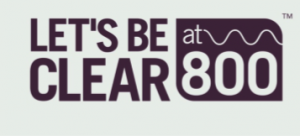
After more than 40 years of operation, DTVE is closing its doors and our website will no longer be updated daily. Thank you for all of your support.
At800 scales back UK DTT service disruption efforts
 At800, the UK body set up to test for interference from 4G networks on DTT in the UK, has scaled back plans to pre-emptively curb service disturbances, claiming that disruption to Freeview will be “less widespread than initially estimated.”
At800, the UK body set up to test for interference from 4G networks on DTT in the UK, has scaled back plans to pre-emptively curb service disturbances, claiming that disruption to Freeview will be “less widespread than initially estimated.”
Announcing at800’s new approach to at a press briefing in London, CEO Ben Roome said that from February the organisation will start a six-month trial of no longer pro-actively sending free filters, designed to correct 4G interference, to households, and will instead retrospectively respond to issues.
“We will be focusing our support, and offering more support, to people who we believe have been affected by 4G at 800Mhz, as opposed to trying to guess in advance who would be effected by it,” said Roome.
To date at800 has sent out 1 million filters to households in the UK, following an initial estimate that 900,000 houses could be at risk of service disruption.
However, last summer the organisation revised this figure down to 90,000 in what Roome this week described as an “upper limit.”
Explaining why the new approach made more sense, he said that tests so far had shown that interference was “lower than originally predicted,” was only found within 900 metres of 4G masts and that areas with strong DTT signal are less likely to experience disruption.
Roome also promised “quicker response and resolution times” under the new system, cutting service restoration times from 15 to 10 days for homes that have their own aerial, where Freeview is the primary means of watching TV and if 4G is diagnosed as the service problem.
However, Roome admitted that at800 has cut its number of regional contractors that supply accredited filter installers from eight to three. Outsourced call centre staff numbers have been cut by a third from a peak of 100, while at800’s own in-house staff has shrunk from 36 to 20.
At800 is an independent organisation but is funded by the UK mobile operators licensed to offer 4G mobile services at 800 MHz – EE, O2, Three and Vodafone.
The operators provided a ringfenced fund of £180 million (€218 million) for at800 to operate for a period that will run until 2017, when coverage obligation ends. At800 would not reveal how much of this £180 budget it has used, but said it did not expect to overspend. All unspent funds will be returned to the mobile operators.


